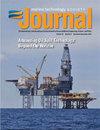根据哥斯达黎加小规模个体渔民的原则、道德价值观和环境与经济正义,落实可持续发展目标14
IF 0.7
4区 工程技术
Q4 ENGINEERING, OCEAN
引用次数: 1
摘要
摘要在哥斯达黎加,与其他国家一样,小规模个体渔民、女渔民和软体动物收集者所经历的脆弱性和边缘化是由于缺乏基于人权的沿海地区海洋保护和发展方法。通常,与其他生产部门相比,非正规、缺乏保有权和获得权、糟糕的医疗服务以及低教育水平是渔民所经历的一部分。本评论分享了如何与这些社区以长期和整体的方式合作,并结合基于人权的方法,加强该部门为有尊严、公平和正义地可持续利用其海洋领土的渔业资源所做的贡献,特别是在可持续发展目标14“海洋十年”的背景下,2022年为国际个体渔业和水产养殖年。出生于新冠肺炎疫情期间,在哥斯达黎加的CoopeSoliDar RL 1和海洋负责任捕鱼区和海洋生命领地网络的支持下,为这些小规模社区的渔业产品建立一个公平公正的海洋市场的倡议,今天是一个具体的例子,说明了公平公正的市场如何能够为可持续发展的目标和基本要素做出积极贡献《生物多样性公约》所载、保护自然环境、可持续利用以及公平公正地分配利益。本文章由计算机程序翻译,如有差异,请以英文原文为准。
Implementing SDG 14 Under Principles, Ethical Values, and Environmental and Economic Justice for Small-Scale Artisanal Fishermen in Costa Rica
Abstract In Costa Rica, as in other countries, vulnerability and marginalization experienced by small-scale artisanal fishermen, fisherwomen, and mollusk collectors are the result of the absence of a human rights‐based approach to marine conservation and development
in the coastal areas. Usually non-formality, absence of tenure and access rights, bad health services, and low education compared to other productive sectors are part of what fisherfolks experience. This commentary shares how working in a long-term and integral way with these communities and
incorporating a human rights‐based approach strengthens the contributions that the sector provides toward the sustainable use of the fishing resource of their marine territories with dignity, equity, and justice, especially in the context of SDG 14, the Ocean Decade, and 2022 as the
International Year of Artisanal Fisheries and Aquaculture. Born during the COVID pandemic, the initiative of a fair and equitable Sea Market for the fishing products of these small-scale communities supported by CoopeSoliDar RL 1 and the Marine Responsible Fishing areas and marine
territories of life network in Costa Rica is today a concrete example of how a fair and just market can contribute positively to the objectives of sustainable development and the fundamental elements contained in the Convention on Biological Diversity, preservation of the natural environment,
sustainable use, and fair and equitable distribution of benefits.
求助全文
通过发布文献求助,成功后即可免费获取论文全文。
去求助
来源期刊

Marine Technology Society Journal
工程技术-工程:大洋
CiteScore
1.70
自引率
0.00%
发文量
83
审稿时长
3 months
期刊介绍:
The Marine Technology Society Journal is the flagship publication of the Marine Technology Society. It publishes the highest caliber, peer-reviewed papers, six times a year, on subjects of interest to the society: marine technology, ocean science, marine policy, and education.
 求助内容:
求助内容: 应助结果提醒方式:
应助结果提醒方式:


